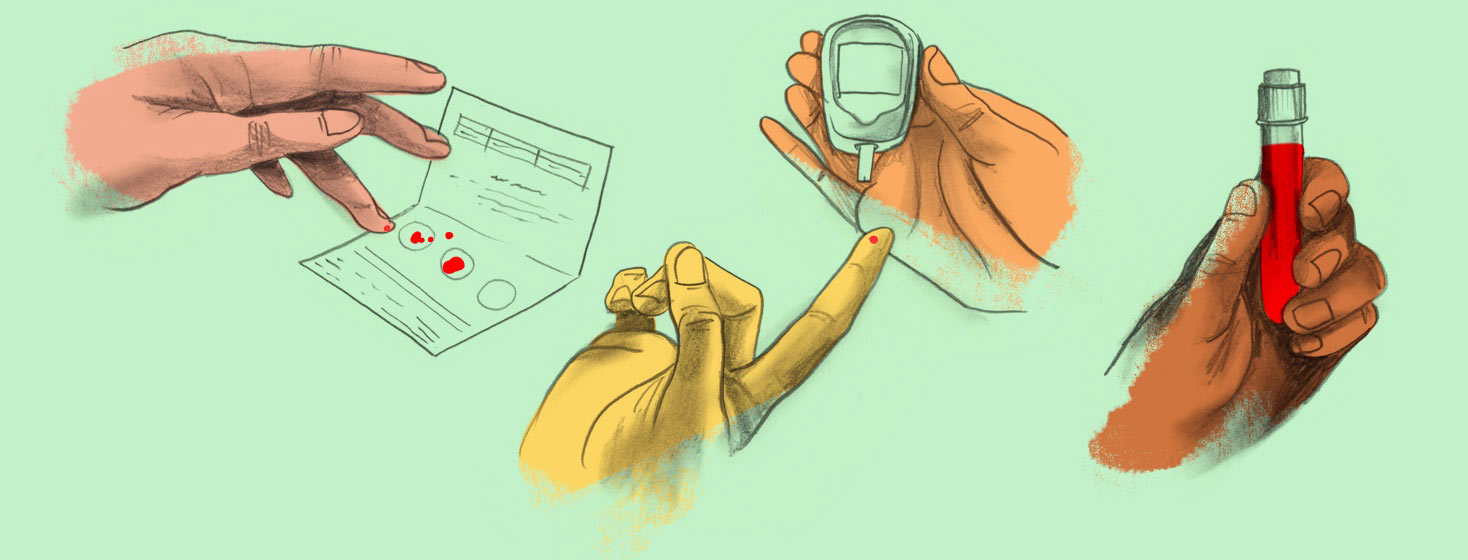What is the Difference between Viral Load Testing and Antibody Testing? Part 1
Receiving a hepatitis C diagnosis can feel like a whirlwind. The testing leading up to the diagnosis is confusing and can be difficult to interpret. Furthermore, it may not be clear how often these tests should be repeated.
There are two types of tests that are used to confirm a hepatitis C diagnosis: viral load and antibody testing. Both tests require a blood sample; however, what they detect is very different.
Investigation for HCV diagnosis usually starts with antibody testing; However, sometimes it is done at the same as viral load testing. Antibody testing is also referred to as an “anti-HCV antibody test.” This test detects whether there are antibodies in the blood to the hepatitis C virus. When infected with a virus, the body produces antibodies to signal that something foreign is invading the immune system. Each antibody made is specific to the foreign pathogen. Therefore, the anti-HCV antibody test detects the presence of hepatitis C antibodies only. If another virus is in question, such as hepatitis B, it would require a separate antibody test.
What does antibody testing tell us?
Results of the test can be either non-reactive or reactive:
Non-Reactive - A non-reactive test indicates that there has been no exposure to the hepatitis C virus, and therefore allows the clinician to rule out hepatitis C as a diagnosis. However, in a minority of cases, a non-reactive test does not rule out hepatitis C. This can happen when there are low levels of antibodies. This can also happen in people who are:1
- Immunocompromised, for example in people with HIV AIDS, cancer, or autoimmune conditions like lupus
- Undergoing hemodialysis
- Infected with HIV
In these groups of people, the viral load test will also be used to confirm that the antibody test was not a false-negative.
In addition, people who may have been infected with hepatitis C over the past 6 months will need to be tested with the antibody test again, because after exposure to the hepatitis c virus, it takes time to be able to detect antibodies.
Reactive - A reactive test indicates that there has been exposure to the virus at some point.
Types of antibody testing
Not all antibody tests are done at the lab and require blood to be drawn. Some of the antibody tests used are called point-of-care testing. This test requires only a finger-prick blood sample and can provide a result as quickly as 20 minutes. Another highly used antibody test is the dried blood spot test, which also requires a a small finger-prick blood sample. However it's not as fast to receive a result: turn-around time can be up to 10 days.
What does the antibody test not tell us?
Anti-HCV antibody testing does not provide us with information on:
- The severity of the hepatitis C infection (i.e., whether fibrosis is present)
- Length of time of infection
- Mode of infection
- Whether the infection is acute or chronic in nature
- Whether the virus has been naturally cleared
Repeating the test after Hep C Treatment
After hepatitis C treatment, antibody tests are not typically repeated. The reason for this is that the antibody test will likelyalways be reactive, even if the virus is no longer in the body.

Join the conversation